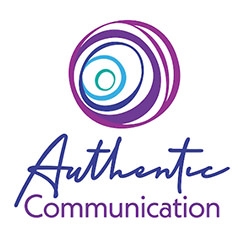

Search Results: openness
-
Why is it so difficult to not take things personally? It's because everything reinforces the sense that whatever is being said is indeed about us – both from without and from within. However, we can get better at not taking things personally with a practice of shifting our focus by being open to multiple interpretations, understanding that our reaction is about our own need, and noticing how the other person’s words, no matter how they sound to us, are an expression of their needs. We can then be more present and available to navigate the situation.
-
Sometimes when we regard needs as something that could be met or unmet by another person or by a situation we unconsciously hold the belief that our needs should be met. Or we end up holding blame or implying wrongdoing. People are more likely to resist a request made from this stance. Instead, here are practices to increasingly losen any remaining attachment or demand energy -- and open our hearts to ourselves and others while we make requests.
-
For effective dialogue clarify your needs, boundaries, and requests beforehand. Setting boundaries is telling someone what you're going to do in order to meet or protect needs for yourself or others. Whereas with requests, even if you have preferences, you still hold open curiosity about strategies to collaborate with others in meeting needs. Read on for more.
-
If we are to transform the existing social order, and shift to a mode of liberation for all, we'll need to look at our own participation in it. This includes how much we are able to focus on keeping our hearts open; speak to impact without attributing intention; and retain a humility that includes our systemic context. Read on for "how to" when we are in a position of less power.
-
In pandemic many are asked to stay home. If we are experiencing violence at home we're also most at risk of harm or death if we leave. There are also less visible pieces at work. In this situation, acknowledging our pain, needs and experience can lighten the internal load to meet what is real, and claim our truth. We can do the same for our kids. This can open more pathways forward, and provide strength to leave when its more viable.
-
Practice making requests for feedback, clarity, and action. Opportunities for making requests might be when you expected something different from what you got, were treated undesirably, and noticed inner constriction or reactivity. Identify observations, feelings, and values to support finding the request. Ensure your request states what you want, is specific, names the present-tense action, and that you're open to feedback.
-
Here's guidance on how to approach your inner experience when triggered or stuck in a distressing life experience. Self-Compassion in life can be experienced as: "There is room for life experience in me. There is an open space for ‘what is’ to be fully present in my inner experience". This exercise is more about tracing your felt experience than verbalizing it.
-
Reactivity can harm relationships, but there are three keys to prevent or dissolve reactivity: discernment (recognize reactivity and interrupting it), transparency (express feelings and wants honestly and making simple requests), support for conscious connection (remind ourselves to practice prioritizing connection in interactions). Practice these to maintain fulfilling relationships and reduce impacts caused by reactivity.
-
So often we're habituated to associate a “why” question with being reproached, blamed or shamed – and so defensiveness arises. However, in order to maintain a flow of understanding and collaboration, we need to hear and say the “why” while finding other ways to ask for it. Here we look at how to ask questions that bring each of us vital information that can open up discovery and learning, for our mutual benefit.
-
Taking a look at how our unconscious biases often go unexamined and unchallenged.
-
Discover how fostering strong attachment and connection with your child can lead to fewer conflicts and more harmonious interactions. Ingrid Bauer offers practical guidance on using empathy, self-connection, and consistent care to create a secure and loving environment for your child.
-
Mary Mackenzie shares how making requests in NVC builds honesty, trust, and deeper connection.

Quick Links
Subscription Preferences
Stay In Touch!
Looking for ways to keep up with NVC Academy news, get special offers, free resources, or words of inspiration? Here are five ways to stay engaged:











